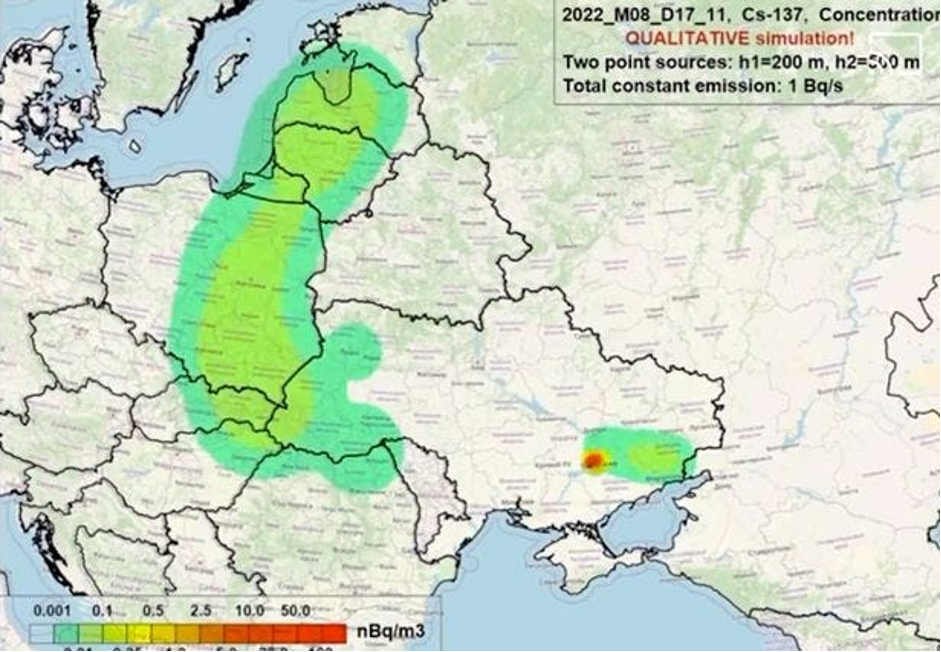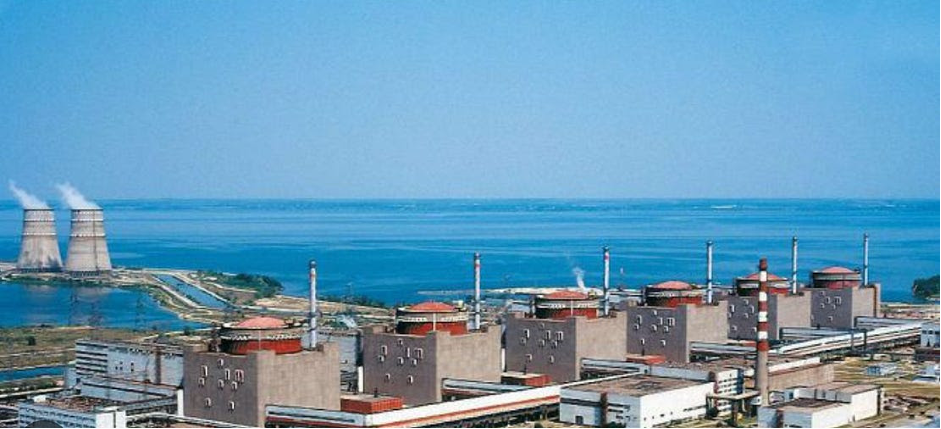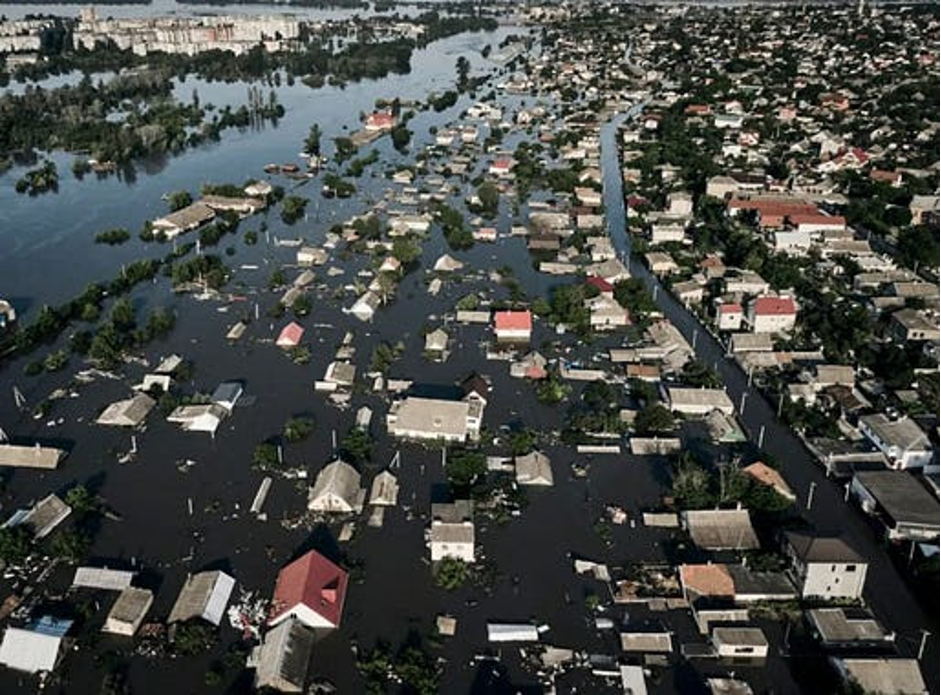Vladimir Putin’s annual St. Petersburg International Economic Forum was as much of a flop as is Russia’s “special military operation” or its economy. The gathering was boycotted by major political and business leaders, and participants were told to bring cash because foreign bank cards no longer work in Russia. The foreign press was banned but this did not stop Putin from ranting for 90 minutes about how well his war and economy were doing and hinting again that Russia might “theoretically” use nuclear weapons. And last week Ukraine’s President Volodymyr Zelensky warned that Putin intends to blow up Ukraine’s largest nuclear plant to thwart Kyiv’s counteroffensive. When asked to respond to this possibility, Secretary of State Anthony Blinken said “we’ll continue to monitor the situation very closely and we don’t see any indications that Russia is preparing the use of nuclear weapons”. But he missed the mark. An occupied nuclear plant that is blown up becomes a nuclear weapon.
 Ukraine’s many nuclear plants including defunct Chernobyl
Ukraine’s many nuclear plants including defunct Chernobyl
JOIN US ON TELEGRAM
Follow our coverage of the war on the @Kyivpost_official.
Placing nukes in Belarus drew a response from Chinese officials who renewed calls for de-escalation and reminded Russia that its leaders, and China’s, had reaffirmed their opposition to nuclear war at their March summit in Moscow as well as in 2022.

Zelensky Says He’s Ready to Step Down for Peace or NATO Membership for Ukraine
“In January last year, the leaders of the five nuclear-weapon states issued a joint statement noting that a nuclear war cannot be won and must never be fought, and stressed that war between nuclear-weapon states should be avoided and strategic risks reduced," Mao Ning, China's foreign ministry spokesperson, said last week.
And, when asked, President Joe Biden called the transfer “totally irresponsible”.
Russia has occupied the plant for months and last summer allowed the International Atomic Energy Agency (IAEA) to monitor its operational safety remotely. But in April, its Director General warned of problems: “We are living on borrowed time when it comes to nuclear safety and security at the Zaporizhzhia Nuclear Power Plant. Unless we take action to protect the plant, our luck will sooner or later run out, with potentially severe consequences for human health and the environment.”
 The Zaporizhzhia nuclear plant, 80 kilometers from the dam
The Zaporizhzhia nuclear plant, 80 kilometers from the dam
In April, the esteemed Scientists for Global Responsibility described potential hazards. “The worst possible scenario is a nuclear strike on a reactor. A direct strike by even the smallest nuclear warhead, for example, a 10 kilo-tonne (kT) ‘tactical’ nuclear warhead – smaller than that dropped on Hiroshima in World War II – would breach the core containment and spread the highly radioactive materials inside. A 10kT nuclear blast and fireball would create a 1km radius zone of major destruction, a crater 25m deep, and would carry radioactive materials into a cloud of 8km altitude and 3km across depositing them underneath and downwind as fallout. The reactor waste products contain long-lasting radioactive isotopes such as caesium and strontium which are readily absorbed into the body or into crops contaminating farmland. This would create a major radiation problem tens to hundreds of times’ worse and much longer-lasting than the nuclear weapon alone.”
The possibility of such a diabolical attack by Russia is not far-fetched, given how Russia has been purposely laying waste to Ukraine. It has planted landmines across an area the size of Switzerland, has displaced at least 11 million people, and destroyed apartment buildings, infrastructure, schools, hospitals, and housing. Last week, Russia blew up the country’s largest dam which will cause decades of environmental damage. But that calamity didn’t stop the counteroffensive, as Russia had hoped, which is why Ukraine’s President Volodymyr Zelensky warned that a “desperate” Putin intends to blow up the nuclear power plant downriver. “They constantly need destabilization here, and they want the world to put pressure on Ukraine to stop this conflict,” he said.
 Widespread flooding following the explosion of the dam
Widespread flooding following the explosion of the dam
Ukraine’s security chief Oleksiy Danilov believes that Putin has launched “a fundamentally new stage of Russian aggression” and that since he “had the hydroelectric power plant blown up on his demand, he's ready to do anything.” The rhetoric coming out of Moscow also ratchets up. On June 14, Russia’s propaganda vehicle RT published a screed by a former Putin advisor named Sergey Karaganov who wrote: “By using its nuclear weapons, Russia could save humanity from a global catastrophe. A tough but necessary decision would likely force the West to back off, enabling an earlier end to the Ukraine crisis and preventing it from expanding to other states”.
Interestingly, Putin advisor, Alexander Dugin (whose daughter died in a car bombing intended to kill him) condemned Karaganov’s suggestion as “irresponsible”. He told journalists at Putin’s Economic Forum "I believe that we are far from having exhausted all the possibilities of victory without the use of nuclear weapons."
Others, such as former Russian diplomat Boris Bondarev, who resigned after last year’s invasion, believe that Putin’s nuclear threats are a bluff. "Today [Putin is] bluffing and we know that he has bluffed about nuclear threats. Ukrainians recovered some parts of their territory, and there was no nuclear retaliation," Bondarev told Newsweek. "If you're afraid of Putin using nukes, then you already lose the war against him and he wins."
The difference is that Putin has already turned a hydroelectric dam into a weapon of mass destruction. He has just crossed a nuclear red line by putting nukes in Belarus in contravention of the non-proliferation treaty. And now he holds Europe hostage by occupying Ukraine’s gigantic nuclear plant which is one missile strike away from becoming the world’s first “dirty bomb”. In response, the West must escalate its support for Ukraine militarily, diplomatically, and economically. Ukraine needs an air force and long-range weaponry. International watchdogs must occupy these plants. And strong pressure must be placed on China and India by their trading partners to issue bold, public condemnations against Putin’s nuclear gambit. Nukes in Belarus and Russia’s occupation of any nuclear plant are unacceptable.
The views expressed in this opinion article are the author’s and not necessarily those of Kyiv Post.
Reprinted from [email protected] - Diane Francis on America and the World See the original here.
You can also highlight the text and press Ctrl + Enter











